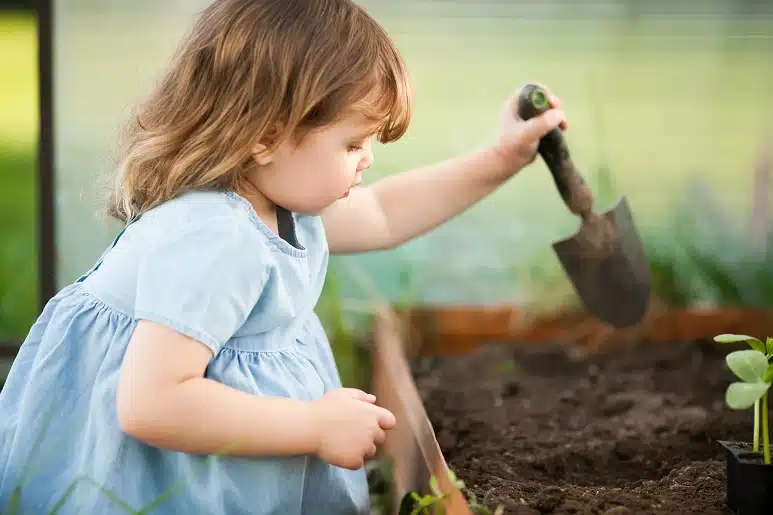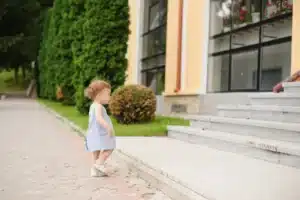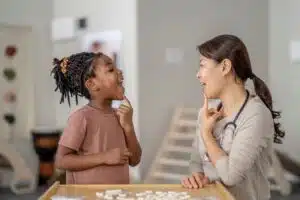By Madison Gwizdalski MS, CCC-SLP
With Spring around the corner, we are looking for ways to get outside and help our children learn! One of our favorite ways to help our kiddos learn and practice new skills is through gardening – here’s why:
The world of gardening exposes children to a whole new world of concepts and vocabulary. It comes with a unique set of names to learn (such as plant names, tools, and parts of a plant) and verbs (e.g., dig, water, bloom). Hands-on activities, such as digging, planting, watering, pruning, or picking flowers are a great way to help children learn and remember these concepts.
Gardening also allows children to practice using language in a variety of ways. There are many opportunities to listen and share information throughout this experience, by giving/following directions, narrating actions, asking for information, and having conversations about what is happening. It is a great activity to target:
- Requesting: “I want to water” or “Let’s plant the daisies”
- Describing: “That plant is small” or “The flower is yellow”
- Ask questions: “What’s that?” or “Why water?”
- Answer questions
Gardening also teaches some important cognitive concepts, such as cause and effect and sequencing. Your child can learn that if they want a plant, it will help it grow, or if they prune the plant, it will make the plant healthier. They can also learn to identify patterns and sequence events that occur while gardening, such as the life cycle of a plant!
- And the positive effects don’t just stop at language development! Gardening is an amazing way and sneaky way for kids to develop:
- Math skills – measuring how plants are growing; counting the number of blooms
- Science – watching their garden grow can spark curiosity in the environment
- Art – keep a photography journal of your plants
- Sensory development – it exposes kids to a variety of elements, textures, sights, and smells
- Exercise – digging in the dirt, carrying a watering can, and helping to move soil can help with gross motor development
- Better nutrition – you may find that your child is more likely to eat fruits/vegetables after they plant them in their garden
- Responsibility – they learn how to care for and be responsible for their garden, as they will need to water, feed, and care for it in many ways!
We love gardening and would love to hear if you tried it with your children!




